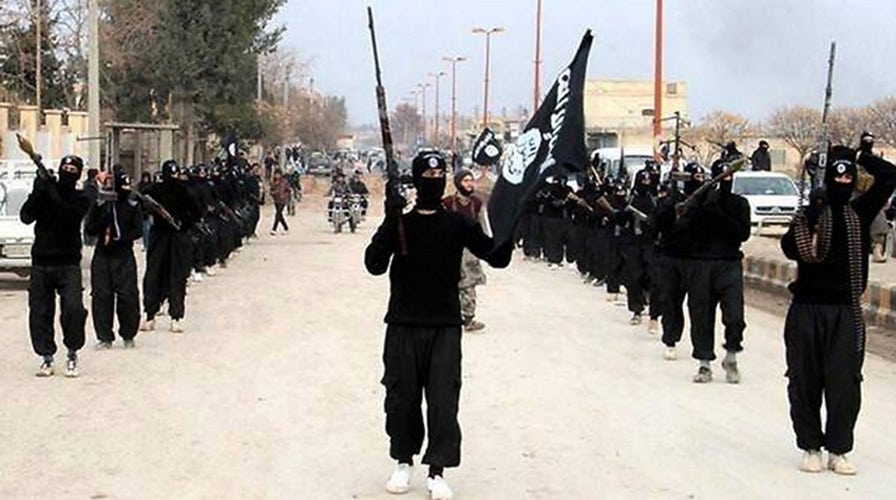New documentary sheds light on rise of ISIS
'The Secret History of ISIS' lays out how and why we got here
AMMAN, Jordan – The Obama administration's diplomatic point man in the fight against the Islamic State group (ISIS) said Sunday that the extremists have been losing control over territory and that "this perverse caliphate is shrinking."
Brett McGurk, presidential envoy to a 66-member anti-ISIS coalition, also told a news conference that the tide has turned in the ideological battle against the extremists.
He described a round-the-clock anti-ISIS propaganda campaign involving companies such as Facebook and YouTube and the governments of Jordan, Malaysia and the United Arab Emirates.
"For every pro-Daesh Twitter handle, there are now six calling out its lies and countering its message," McGurk said, referring to ISIS by its Arabic acronym.
U.S. officials said earlier this year that the military had ramped up cyber operations against the group.
The officials said at the time that operations include efforts by U.S. Cyber Command at Fort Meade, Maryland, to prevent the group from using the Internet and social media to communicate and distribute propaganda aimed at attracting and inspiring recruits.
In his news conference, McGurk singled out Jordan as an example of what he called Washington's "sustainable strategy" of eschewing boots on the ground for local, regional and Islamic forces against ISIS.
He said Jordan has been conducting weekly air strikes against IS targets and is involved in intelligence gathering and anti-IS propaganda.
ISIS has suffered recent military setbacks and lost territory in both Iraq and Syria.
McGurk said the group is on the defensive and that "this perverse caliphate is shrinking."
But as ISIS militants are pushed back along front lines, the group is increasingly turning to insurgency-style terrorist attacks to keep pressure on the Iraqi government. Such attacks have left more than 100 dead in the past week,
IS launched a coordinated assault Sunday on a natural gas plant north of Baghdad that killed at least 14 people, while a string of other bomb attacks in or close to the capital killed 15 others, Iraqi officials said.
While IS is losing ground in Iraq and Syria, its global affiliates appear to have grown in strength in countries like Libya.

